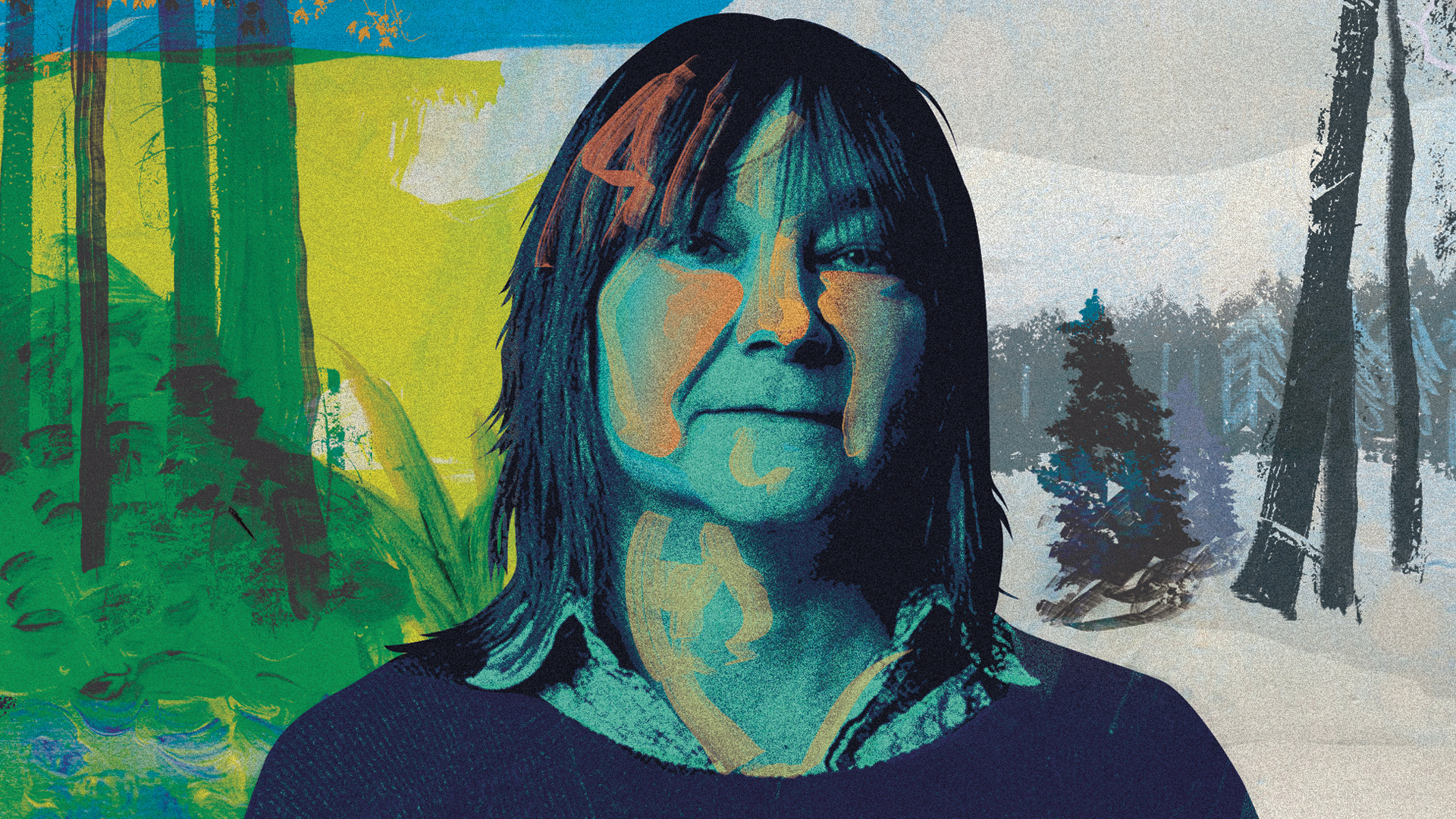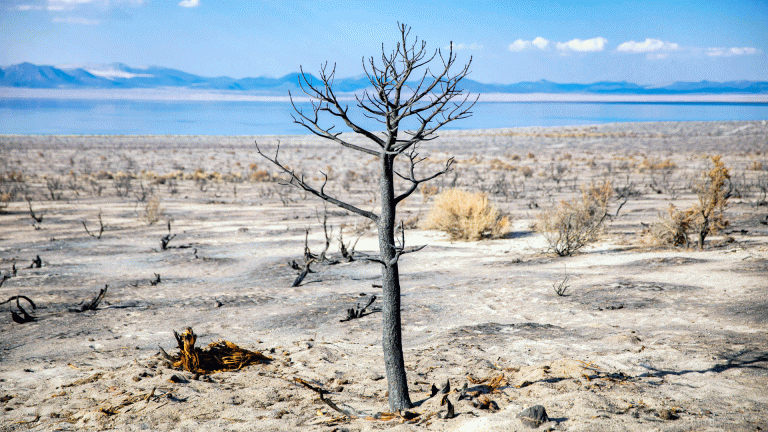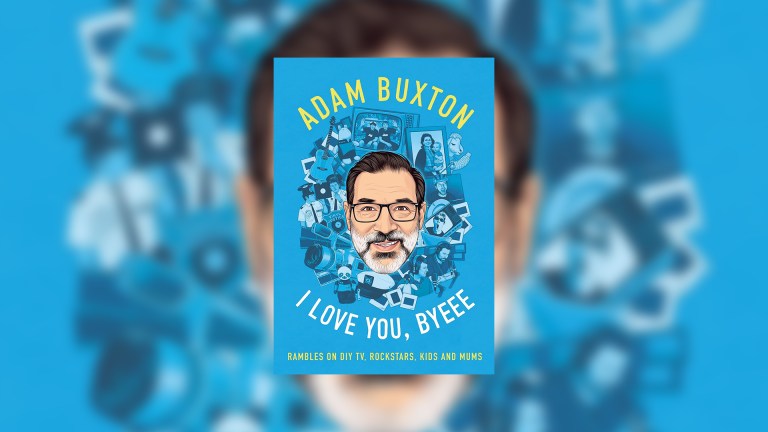Was it more difficult to do what Dickens did in an era of rolling news? Did you worry bits of it might date quite quickly?
I think every book belongs to its time. I tend to think there’s no such thing, really, as historic or futuristic fiction. It will always be about the time it’s written in. [Hilary] Mantel’s books made it pretty clear sectarianism’s alive and well. [Margaret] Atwood’s books alert us to right now – The Testaments opens and closes with the moralities around statues! And story always rises above time. So things will date, and they won’t, both. That’s not really a risk, it’s just a fact.
Walls mean territory. They mean exclusion. These two things can be made to look like they mean ‘loyalty’ and ‘identity’
Each of the novels references Dickens – do you see yourself as a social chronicler in his mould?
I don’t see myself as an anything. But I know what Dickens saw was both the possible world and the actual world, held in transparent and revealing tandem, and that he trusted to a warmth in us all – regardless of how cold a time it might be – that pulls towards the humane. So I am taking kind shelter from the rain under his greatcoat, and am grateful for his books befriending these ones.
All your characters and plot lines come together beautifully in Summer – did you have the bones of the four books in your head before you started? Or did the plotlines evolve as you went along?
I’ve been constantly, repeatedly surprised by these books – as I have with every book I’ve written. Every time, they’ve gone their own road regardless of anything I imagined I’d be doing writing them. All books do. Otherwise, I guess, what’d be the point of writing them? I’ve never had a plotline for any of them that held for more than five minutes, never planned anything that didn’t disrupt itself or refuse me and go off down its own path, surprising me with its own symmetries.
Advertising helps fund Big Issue’s mission to end poverty
For all the bleakness of the backdrop, your novels are full of hope. How do we find hope when all seems lost?
I think that’s what hope is – real hope is what happens only when “all seems lost”. Hope and despair are kinds of symbiosis. Like tightrope-walking along the blade of a knife.
Do you think anything good will come of the pandemic?
The pandemic, the coronavirus, as well as being the real and foul griefwork that it is, is a complex gift to us. It lets us know borders actually mean nothing to nature, and how mighty the very small is. It makes us clean up our act. In many instances isolation has made something communal happen in a way we’d never imagined. It lets us see that social change on a huge scale is possible fast. Also, that skies and rivers can clear of pollution quite fast in clean air. It lets us understand, too, with real acuity, the difference between good governance and bad governance.
Why is the world obsessed with walls/fences (which feature in all the books)?
They mean territory. They mean exclusion. These two things can be made to look like they mean “loyalty” and “identity”, and all of this adds up to power and money, like everyone’s always known, deep in the maths of our atavism, that divide equals rule. But humans aren’t that kind of simplified maths, and we’ll always put a door or a window in a wall, and the first thing you want to do with a fence is dig under or climb over it. That’s what they’re for, we know this from a very young age, and it’s what we’re for.
Advertising helps fund Big Issue’s mission to end poverty
Sibling relationships run through these novels – is the dynamic between siblings something that fascinates you and, if so, why?
I grew up the youngest in a family of five kids, two sisters, two brothers. Most probably I see the world through the particular spectrum of love, pecking order, and daily social negotiation that this growing-up gave me. Brotherhood, sisterhood, siblinghood, they’ve been too little studied, too little understood, they’re the peer group of social structure and they’ve been a social hope for centuries.
The kind of characters the writer Olivia Laing called “radiant disruptors” – maverick outsiders, like Amber in The Accidental, Lux in Winter, Florence in Spring, who burst into settled lives, changing everything – run through your work. Where does that come from?
From myth, fable, from the core of every religion there is, and from another core story of our time, the story of the so-called other, the so-called outsider and what society does when that stranger knocks on the door. And it’s the story of all time, from Gilgamesh and Homer to Chaplin’s tramp, and it’s the story of that turbulent last century, and more and more, in the pressure of poverty, the pressure of war and the pressure of climate damage, it’s the story of this century we’re in now given that more displaced people are crossing the world looking for home, kindness and humankind-ness than ever before.
You are so clever at playing with words, yet you seem to suggest – with Ashley [a character in Summer] losing the ability to speak and with your references to Lorenza Mazzetti’s Together [a 1956 black and white film about two deaf and mute labourers who find companionship and acceptance in one another] – that language is insufficient. Could you expand on this?
Words are only one kind of language. There are all sorts of languages that don’t use them. And languages can take all sorts of forms. There’s the sign language the deaf men in Mazzetti’s film use to talk to each other, with real eloquence. There’s the silence that Ashley’s left with as she tries to analyse what words are doing right now in the public and political domain. Her silence speaks volumes. Language in all its forms is powerful. In its verbal and syntactical form it’s how human beings make and mark and try to express what we mean – which makes language as complex and multiple, or as reductive and sloganeering, as we are, and reveals us to ourselves. Right now, in the dogwhistle political world, in a time of unprecedented speed of information and unprecedented need of good information, a time of ancient/new fake news, ancient/new power-mongering lies and rubbishing of truths, and above all in a time of real necessity because of the pandemic, the importance of analysing the rhetoric, the time’s language, and its use and its effect on us, is more important than ever.
Advertising helps fund Big Issue’s mission to end poverty
How do you feel when people use the word fascism to describe what’s happening in the US?
I remind myself of the best definition of fascism I’ve heard. It’s from [art critic] John Berger, talking in his very late years. He said fascism is when one group of people thinks it has the right to decide about or to exclude another group of people. It’s no surprise the Black Lives Matter movement is so strong and so righteous and true and such a good force right now when exclusion’s become a political tool across so many countries.
What comes next?
Right now I’m off for a sleep. But wake me in time for the Buffy the Vampire Slayer reruns on E4.
Summer by Ali Smith is out now (Hamish Hamilton £16.99)










